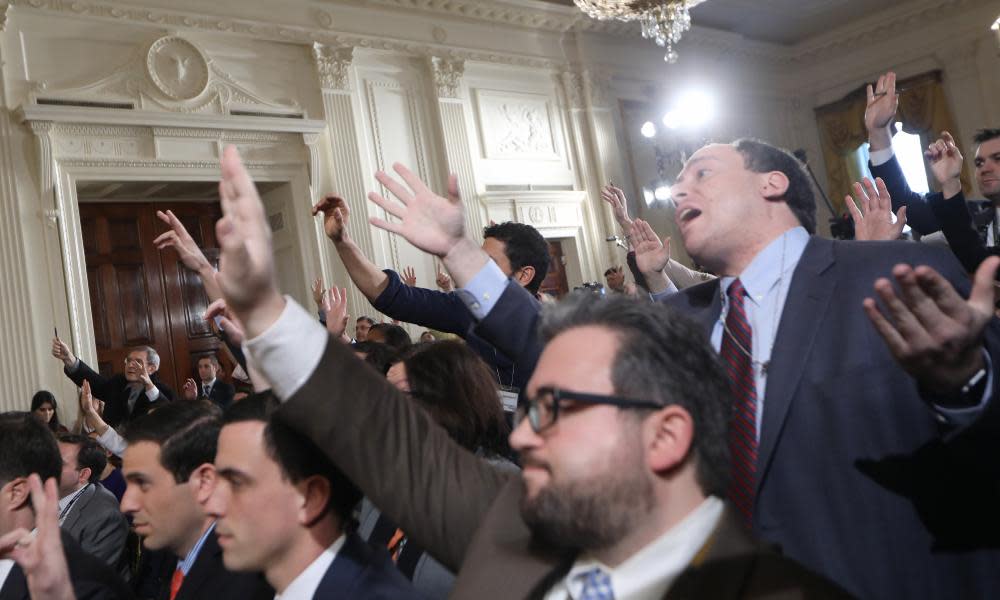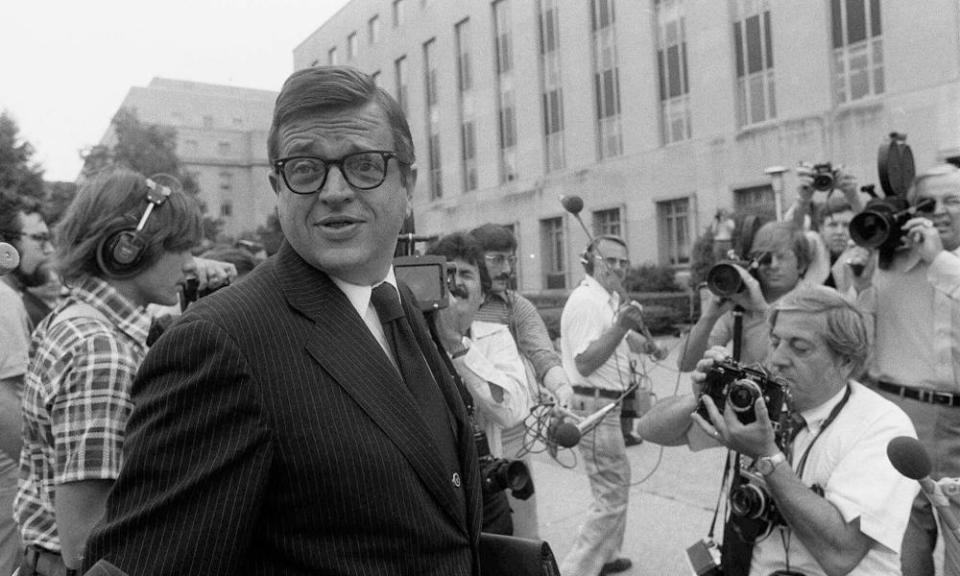The British media are failing Brexit’s test | Sarah Helm

Shepard Smith, an American television news anchor commenting after last week’s extraordinary anti-media tirade by Donald Trump, turned to the camera to address the president directly. Trump could not just treat journalists “as fools” when they asked for answers on Russia, Smith said. “No, sir. The people deserve that answer at the very least.” This was not some liberal media opponent but a journalist with the ultra-conservative Fox News.
Just as British journalism faces its greatest challenge for decades it seems to be reaching a new nadir
Watching US journalists on the scent of the Trump White House has been a cheering spectacle. Reviving the skills of the Watergate era, the Washington Post last week felled national security adviser Michael Flynn over links with Russia. I’ve no doubt more exclusives will soon be emerging from New York and Washington.
Journalists in Britain are also covering the story of their lives but, with some honourable exceptions, not only are they not finding for the British people “the answers they deserve”, they are not even asking the right questions. Our hard-Brexit prime minister is given a shockingly easy ride by most of the media.
The bonfire of American values that Trump is building appears more dramatic than the slow-burn of Brexit. But the British people, led to believe that leaving the EU would save hospitals, clear out immigrants and bring jobs, need to know not just that they’ve been lied to, but what exactly the future may hold for them.
And that future is no less imperilled by Brexit than the US is by Trump. Arguably the dangers are worse. Trump can be voted out in four years, if he’s not impeached sooner. So permanent are the consequences of Brexit that our children will soon be asking their parents why on earth they voted for it.Why did politicians with no plan take such risks with the economy, with climate, with 70 years of peace in Europe and with values that when growing up these children were taught to hold dear? They will be dumbfounded to learn that we simply didn’t ask the questions.

With the Republican party dominating the US Congress and the Labour party in Britain in a state of collapse, political opposition on both sides of the Atlantic is impotent. The unelected House of Lords, debating Brexit this week, will barely be heard. So it falls to the independent press to hold political leaders to account. How ill-equipped we are.
But how could it be otherwise when it’s the British media itself that is in large part responsible for the botched Brexit vote. So distorted was British coverage of Brussels over 40 years that it was hardly surprising “the people” were confused about why Europe mattered. Indeed, Boris Johnson, now foreign secretary, is largely responsible for the biased coverage after inventing his own potent brand of “fake news” while a Brussels correspondent for the Daily Telegraph – a brand he then flogged during the Brexit campaign.
British journalism is now having to play catch-up on a complex story much of it never bothered to understand, at a time when newsrooms are stripped to the bone. Those few organisations still forensically reporting find their work undercut by social media while politicians tweet direct to voters, often telling them to ignore the press.
Trump tweets that the American media are “the enemies of the people” – a phrase favoured by Stalin and Mao. Meanwhile the Murdoch press claims it speaks for “the people” even as its flagship paper, the Times, sends Michael Gove – one of its columnists – to bow and scrape at Trump’s feet.
Just as British journalism faces its greatest challenge for decades it seems to be reaching a nadir. Paul Dacre’s Daily Mail slammed the independent judiciary as “enemies of the people” too – thereby winning that same accolade, in its true meaning, for himself.Asked recently why MPs who opposed Brexit were nevertheless voting for the triggering of article 50, Nick Clegg, said bluntly: “Because they’re terrified of Dacre, like the rest of us.”
Perhaps even more depressing is the abject failure of the BBC to keep asking again and again exactly what Brexit entails. It would not bore viewers and listeners because the process has the potential to overturn every aspect of our lives – from the cost of Marmite to the chances of a war. Yet blinded by a need for “balance” and terrified to be seen to be too far out of step with the jingoistic mood, BBC interviewers flail. Reporters working on a BBC documentary about the rise in race hate crimes have been told to cut it from an hour to half an hour, “or it will be seen as anti-Brexit”. But asking questions doesn’t show a lack of balance; it shows you’re after an important story.
The newfound strength of the press in the US springs in large part from the fact that the American constitution requires them to challenge power. Watergate showed how this gave them the resolve to topple a corrupt president. We British journalists have often sneered at the pomposity of American colleagues of the “fourth estate”, but today theirs is an enviable estate to have.

 Yahoo News
Yahoo News 
